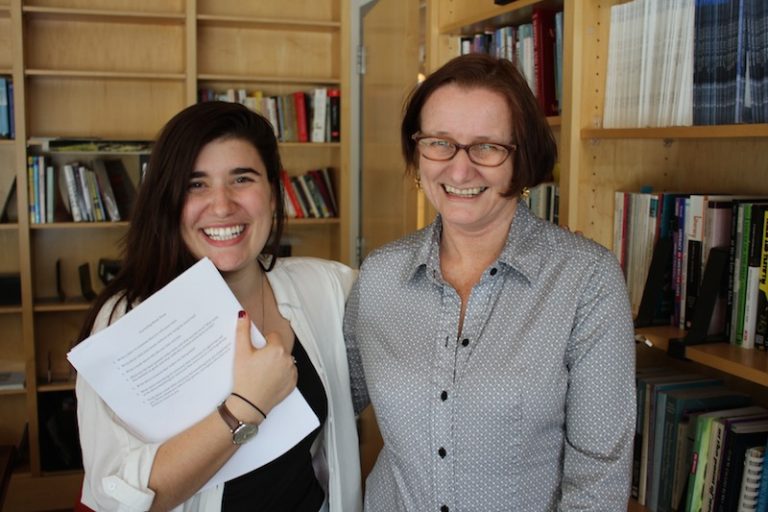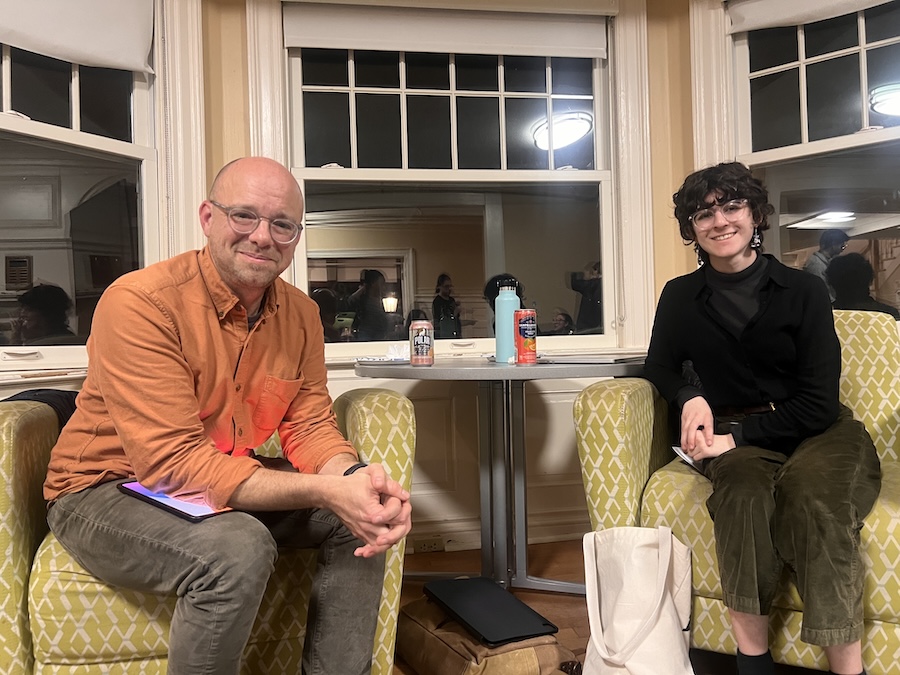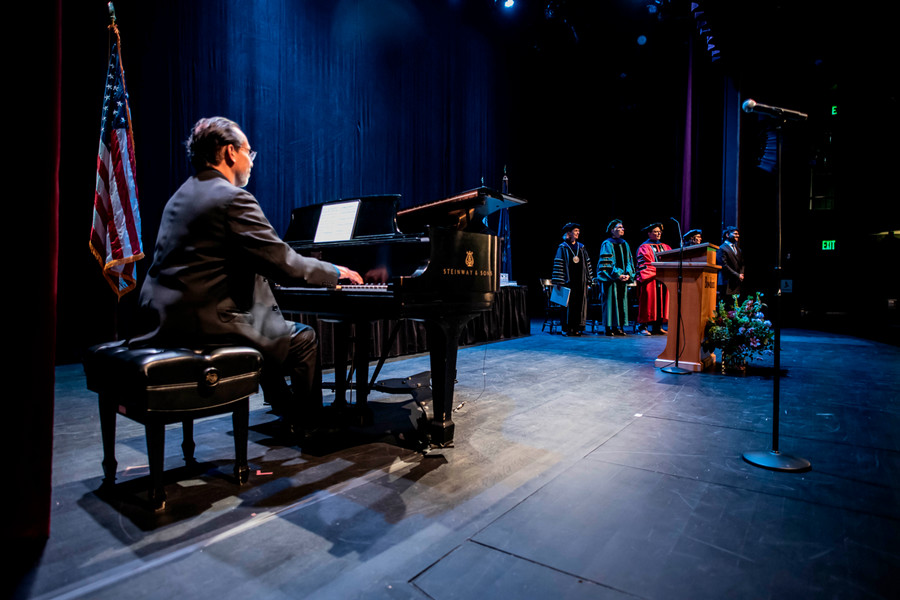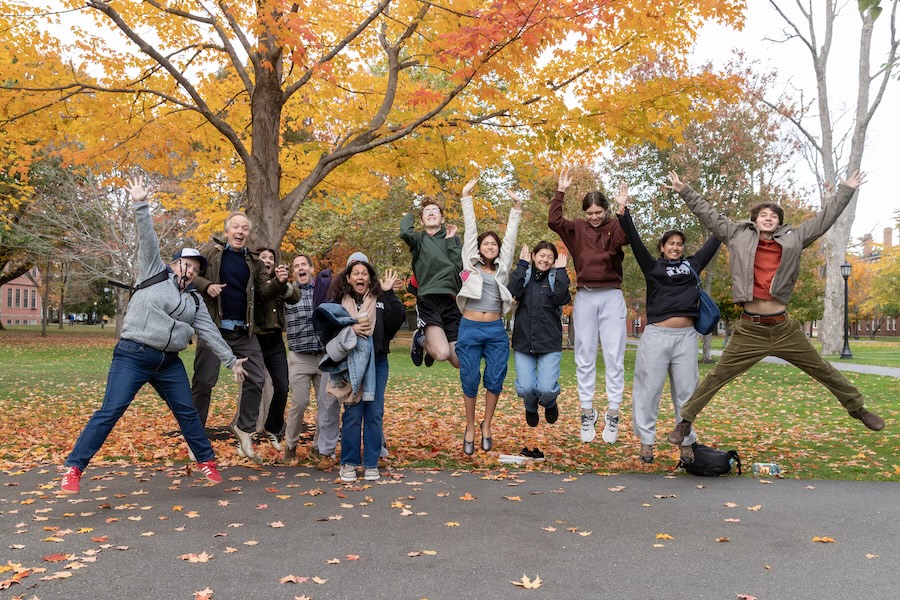Raisa Tolchinsky ’17 Offers New Student Writing Group to Spur Reflection
By Rebecca Goldfine
College life for Bowdoin students involves a lot of writing, from class papers to texting. But outside of the English Department's creative writing classes, there is often not a lot of time or impetus to work on this kind of writing. It requires a unique approach and mindset, as well as perhaps a dedicated space and community.
While Raisa Tolchinsky ’17 has made certain she finds the time to work on her own creative writing, she began to wonder how she could make it easier for other students to do the same. When she first walked into the Center for Learning and Teaching last fall, she suggested to Lisa Flanagan, who works there, that she serve as a mentor and help students one-on-one with their poems or stories. The Center for Learning and Teaching provides mentoring and tutoring services.
But Flanagan suggested instead Tolchinsky lead a writing group, called Writing for Reflection. For the senior English major, this proposal was ideal. “It was the perfect moment when she said that,” Tolchinsky remembered. “I thought it would be really nice to have a space where people could do creative journaling in a no-pressure way to reflect on their week. Because I know for me, if things are really rough, writing is a super helpful way to figure some things out.”
Each Friday, from 2 p.m. to 4 p.m. at the Center for Learning and Teaching, students can drop by to write with pen and paper together, although there is no expectation they share their final words. This is in part to encourage them to write without judgment. “I think there’s something really beautiful about the process of being messy in writing and not feeling like it has to be good,” Tolchinsky said. “A lot of stuff I write is terrible! But if you write often, you get comfortable with that.”
To provide inspiration, Tolchinsky hands out poems to read and discuss as a group—such as Wild Geese by Mary Oliver and The Art of Disappearing by Naomi Shihab Nye. She also provides voluntary writing prompts, such as, “Write about what love means without ever using the word itself,” or, “Write about something (or someone) that scares you in a good way, and write about something or (someone) that scares you in a not so good way.” Another has been, “What was the best moment of the week, and what was the worst? What made this moment so good and what made this moment particularly terrible?”
Offering the space for this kind of reflective writing at Bowdoin can help bolster students’ academic success, Flanagan argued. “There is a lot of evidence that writing about your learning and about yourself can free up space to increase cognition,” she said. She noted that Tolchinsky’s prompts often encourage students to write about a personal or academic challenge.
Some psychologists also claim that for those struggling with stereotypes—perhaps students of color, or female students in a male-dominated class—personal writing can help relieve stress and free them to focus on other matters, such as studying for an exam or thinking through a tough paper. “Writing can help students see themselves as whole people and not just this person sitting in a chemistry class and struggling with whatever situation,” Flanagan explained. “You see yourself as a complex person, and this [struggle] is just one part of your life.”
Aaron Zweig ’18 has attended a few of the journaling sessions, looking for a way to gain insight. “I’ve never journaled before,” he said. “It’s been a new experience for me.” Students can come for just one session, or go regularly.
After one session, Zweig had a tangible feeling of relief, which he contributed to having had a moment of clarity while writing. “I realized there is a lot more love in my life from friends and family than I thought,” he said. “One reason I hadn’t known that is because love isn’t always expressed in the same way I give it….My perspective shifted.”
Tolchinsky plans to make a career in writing after she graduates, and she already has a summer internship lined up with the Buddhist magazine Tricycle in New York City. She joked, however, that she has already found her dream job. “This is a crazy lucky thing that happened,” she said, referring to the Writing for Reflection group. “I’m like, can this be my job after I graduate? Can I just lead journaling sessions?”



